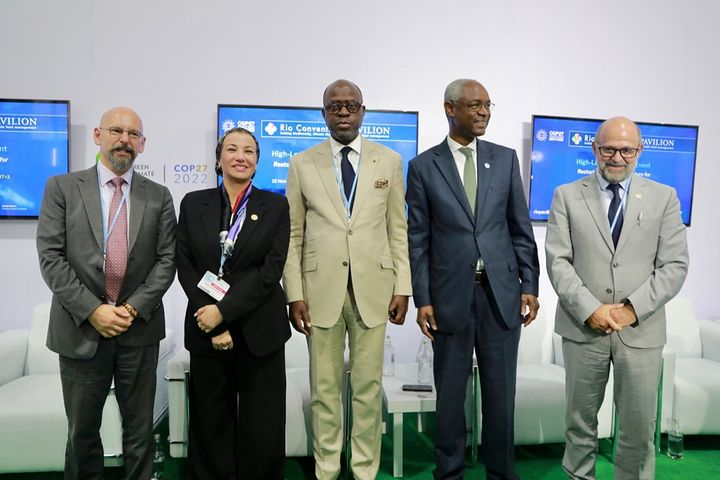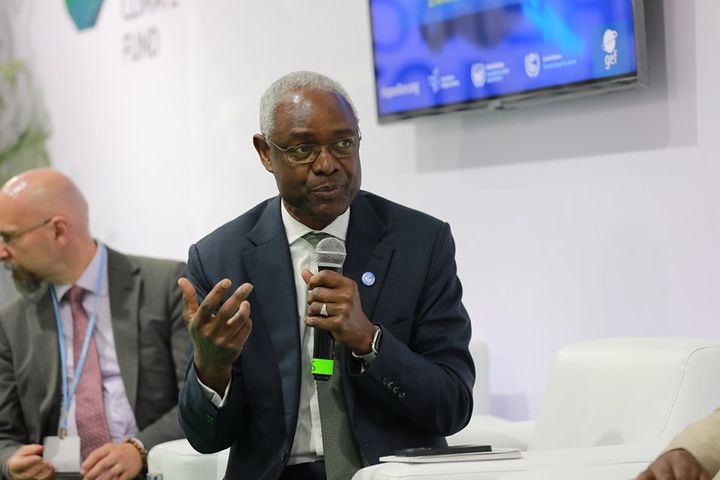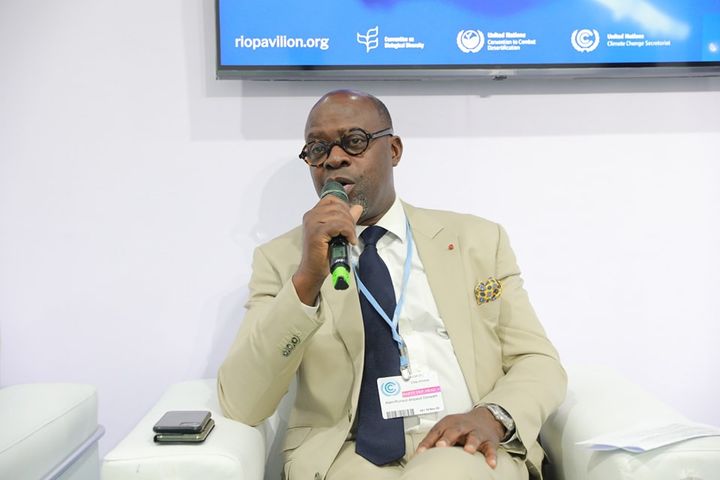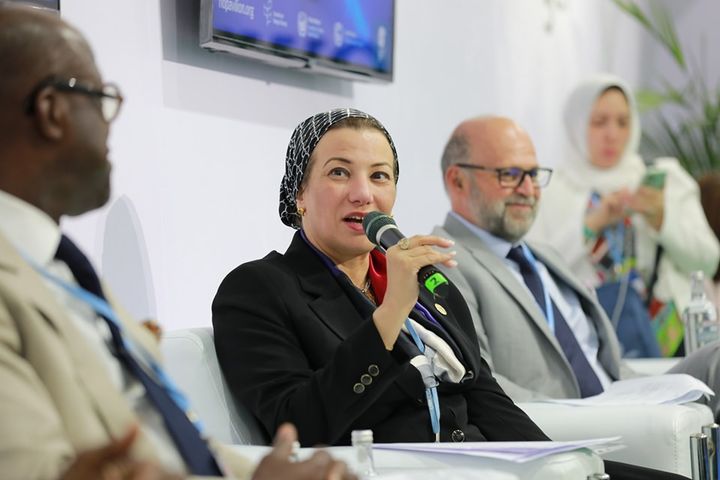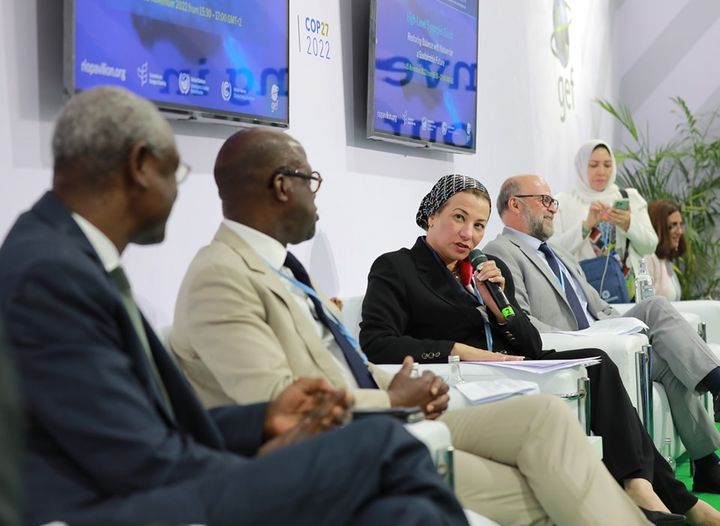HE Tiresa Ribera, Deputy Prime Minister for the Ecological Transition and Demographic Challenge | HE Sameh Shoukry, Egyptian Minister of Foreign Affairs and COP27 President | Mr. Alain-Richard Donwahi, President of UNCCD at COP15 | Mr. Carlos Manuel Rodriguez, CEO and Chair of the Global Environment Facility | Mr. Ibrahim Thiaw, Executive Secretary of the UN Convention to Combat Desertification | Ms. Elizabeth Mrmema, Executive Secretary of the Convention on Biological Diversity | Simon Stiell Secretariat of the UN Framework Convention on Climate Change | Mr. David Ainsworth, Head of Communications, Secretariat of the Convention on Biological Diversity
Loss of biodiversity is one of the most devastating impacts of climate change as it compounds the damages to our ecosystems, agriculture, and livelihoods. As the planet’s atmospheric temperature continues to rise, extreme weather events become more frequent, and ecosystems, to face further destruction, we drive loss of species, sometimes with irreversible consequences.
In 1992 Earth Summit established The Rio Conventions, a framework to combat biodiversity loss, desertification, and climate change. However in the decades since, these phenomena continue to worsen. Yet it is estimated that if we restored our biodiverse ecosystems and applied regenerative systems, the economic benefits could exceed USD 125 trillion dollars annually.
This high-level synergy side event discussed and renewed the commitments of the Rio Conventions and called on the international community to reconsider how we engage with nature.
يعد فقدان التنوع البيولوجي هو أحد أكثر الآثار المدمرة للتغيرات المناخية، كونه يضاعف الأضرار التي تلحق بأنظمتنا البيئية.
وللوقوف أمام هذا الزحف الضار، وُقعت اتفاقية ريو عام ١٩٩٢ لمكافحة فقدان التنوع البيولوجي، ولكن استمرت تلك الظاهرة، مسببة المزيد والمزيد من الأضرار لأنظمتنا.
ناقشت هذه الجلسة كيفية تجديد الالتزامات التي نصت عليها اتفاقية ريو، والدعوة إلى إعادة النظر في كيفية تعاملنا مع الطبيعة.
